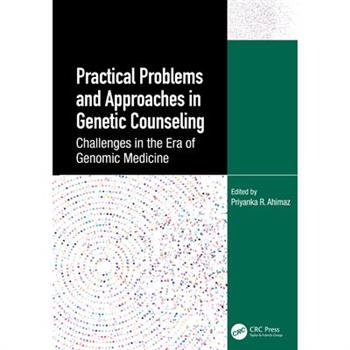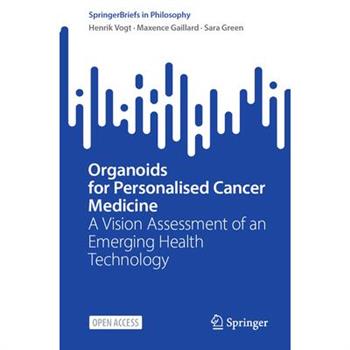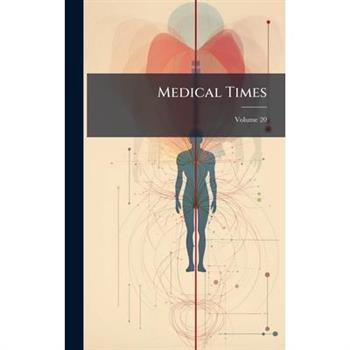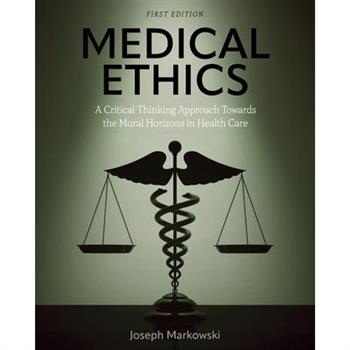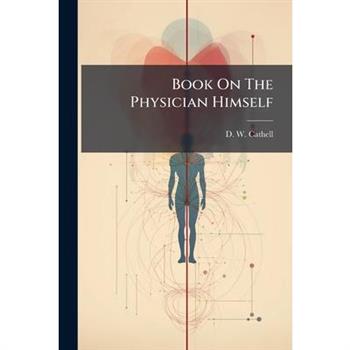Exploring the Ethics of Clinical Xenotransplantation
This book provides a comprehensive examination of the ethics of xenotransplantation. Each chapter provides a nuanced overview of the positions that have been offered on a specific topic and the authors seek to provide a way forward.
Optics of the Human Eye
This book describes the optical structure and optical properties of the human eye. It is divided into a number of short chapters with each chapter dedicated to a single theme. For ease of reference, the most commonly useful topics are at the beginning and topics with narrower appeal, such as ocular aberrations, are placed towards the end.
Practical Problems and Approaches in Genetic Counseling
This innovative text aims to help the genetic counselor in training and in practice prepare for the challenges arising in everyday patient scenarios, from genomic medicine, communication challenges, ethical issues, and emerging topics in a fast moving field.
Eco-Cooling Chambers Without Electricity
This book explores the design, construction, and performance of zero-energy cooling chambers using natural, locally available materials like cocopeat, sand, sawdust, and gunny bags. Built on the principles of passive evaporative cooling, these chambers offer an eco-friendly, low-cost solution for preserving perishable items such as fruits, vegetables, dairy, and flowers in rural areas without electricity. Through detailed design guidelines, experimental data, and practical insights, the book demonstrates how such chambers can maintain temperatures 10-14簞C lower than ambient, significantly extending shelf life. Ideal for farmers, researchers, and sustainability enthusiasts, the book highlights challenges, solutions, and future opportunities for scaling this green innovation in agriculture.
Proceedings
This is Volume 16 of the Proceedings from the International Hahnemannian Association, offering insights into the practice and principles of homeopathy as understood by its 19th-century proponents. It provides a detailed record of cases, discussions, and advancements within the field of homeopathy. These proceedings offer a unique window into the historical context of alternative medicine and the debates surrounding its efficacy. For historians of medicine, practitioners of homeopathy, and anyone interested in the evolution of medical thought, this volume provides valuable primary source material.This work has been selected by scholars as being culturally important, and is part of the knowledge base of civilization as we know it. This work was reproduced from the original artifact, and remains as true to the original work as possible. Therefore, you will see the original copyright references, library stamps (as most of these works have been housed in our most important libraries around the world), and other notations in the work.This work is in the public domain in the United States of America, and possibly other nations. Within the United States, you may freely copy and distribute this work, as no entity (individual or corporate) has a copyright on the body of the work.As a reproduction of a historical artifact, this work may contain missing or blurred pages, poor pictures, errant marks, etc. Scholars believe, and we concur, that this work is important enough to be preserved, reproduced, and made generally available to the public. We appreciate your support of the preservation process, and thank you for being an important part of keeping this knowledge alive and relevant.
Outlines of a New Theory of Muscular Action
"Outlines of a New Theory of Muscular Action" by Samuel Haughton presents a detailed exploration of muscular physiology as understood in the mid-19th century. This work delves into the mechanics of muscle movement, offering insights into the scientific understanding of the human body during this period. Haughton's approach provides a valuable perspective on the historical development of physiological science. This book is of interest to those studying the history of medicine, the evolution of scientific thought, and the detailed understanding of muscular function.This work has been selected by scholars as being culturally important, and is part of the knowledge base of civilization as we know it. This work was reproduced from the original artifact, and remains as true to the original work as possible. Therefore, you will see the original copyright references, library stamps (as most of these works have been housed in our most important libraries around the world), and other notations in the work.This work is in the public domain in the United States of America, and possibly other nations. Within the United States, you may freely copy and distribute this work, as no entity (individual or corporate) has a copyright on the body of the work.As a reproduction of a historical artifact, this work may contain missing or blurred pages, poor pictures, errant marks, etc. Scholars believe, and we concur, that this work is important enough to be preserved, reproduced, and made generally available to the public. We appreciate your support of the preservation process, and thank you for being an important part of keeping this knowledge alive and relevant.
On the Socalled "new Element" of the Blood and its Relation to Coagulation
"On the Socalled \"new Element\" of the Blood and its Relation to Coagulation" delves into 19th-century hematological research. Authored by Geo T Kemp, this historical scientific work explores the composition of blood and its complex process of coagulation. This volume offers insights into the scientific understanding of blood components during a pivotal era of medical discovery. This historical work provides valuable insights for researchers, historians of science, and anyone interested in the evolution of medical knowledge. It represents a fascinating glimpse into the scientific methods and theories of the late 19th century. This work has been selected by scholars as being culturally important, and is part of the knowledge base of civilization as we know it. This work was reproduced from the original artifact, and remains as true to the original work as possible. Therefore, you will see the original copyright references, library stamps (as most of these works have been housed in our most important libraries around the world), and other notations in the work.This work is in the public domain in the United States of America, and possibly other nations. Within the United States, you may freely copy and distribute this work, as no entity (individual or corporate) has a copyright on the body of the work.As a reproduction of a historical artifact, this work may contain missing or blurred pages, poor pictures, errant marks, etc. Scholars believe, and we concur, that this work is important enough to be preserved, reproduced, and made generally available to the public. We appreciate your support of the preservation process, and thank you for being an important part of keeping this knowledge alive and relevant.
Correspondence And Discussion Between Dr. T. Hun And E.c. Delavan, Relative To Dr. Sewall's Drawings On The Human Stomach And The Doctrine They Teach, &c ... 1843
This historical document, "Correspondence And Discussion Between Dr. T. Hun And E.c. Delavan, Relative To Dr. Sewall's Drawings On The Human Stomach And The Doctrine They Teach, &c ... 1843," offers a fascinating glimpse into medical knowledge and practices of the 19th century. Focusing on the correspondence between Dr. Thomas Hun and E.C. Delavan, the text centers around Dr. Sewall's drawings of the human stomach and the medical doctrines they represent.Providing insight into the understanding of human anatomy and physiology during this period, this work sheds light on historical perspectives in medicine, and the ways in which medical professionals communicated and debated scientific ideas. This historical correspondence offers valuable insight for anyone studying the history of medicine, scientific discourse, and the evolution of medical knowledge.This work has been selected by scholars as being culturally important, and is part of the knowledge base of civilization as we know it. This work was reproduced from the original artifact, and remains as true to the original work as possible. Therefore, you will see the original copyright references, library stamps (as most of these works have been housed in our most important libraries around the world), and other notations in the work.This work is in the public domain in the United States of America, and possibly other nations. Within the United States, you may freely copy and distribute this work, as no entity (individual or corporate) has a copyright on the body of the work.As a reproduction of a historical artifact, this work may contain missing or blurred pages, poor pictures, errant marks, etc. Scholars believe, and we concur, that this work is important enough to be preserved, reproduced, and made generally available to the public. We appreciate your support of the preservation process, and thank you for being an important part of keeping this knowledge alive and relevant.
The Art Of Preserving Health
"The Art Of Preserving Health," by John Armstrong, M.D., offers a poetic exploration of health and wellness. Accompanied by a critical essay by J. Aikin, M.D., this volume blends medical insight with artistic expression. Armstrong's work delves into the principles of preventive medicine and healthy living through elegant verse, making it accessible and engaging for readers interested in both health and literature.This edition provides a unique perspective on eighteenth-century medical thought and practices, presented in a format that is both informative and aesthetically pleasing. The combination of Armstrong's poem and Aikin's analysis offers a comprehensive view of the art of preserving health, making it a valuable addition to any collection focused on medical history or English poetry.This work has been selected by scholars as being culturally important, and is part of the knowledge base of civilization as we know it. This work was reproduced from the original artifact, and remains as true to the original work as possible. Therefore, you will see the original copyright references, library stamps (as most of these works have been housed in our most important libraries around the world), and other notations in the work.This work is in the public domain in the United States of America, and possibly other nations. Within the United States, you may freely copy and distribute this work, as no entity (individual or corporate) has a copyright on the body of the work.As a reproduction of a historical artifact, this work may contain missing or blurred pages, poor pictures, errant marks, etc. Scholars believe, and we concur, that this work is important enough to be preserved, reproduced, and made generally available to the public. We appreciate your support of the preservation process, and thank you for being an important part of keeping this knowledge alive and relevant.
Wait a Minute
When the medical non-combatant is denied security, safety, and rights under the Law of Armed Conflict and Geneva Convention, this tendency toward anarchy in warfare suggest that there is safety for no one. Medical non-combatants are not trained or prepared to be Prisoners of War. Medical non-combatants are not prepared or ready to face the human rights violations common to third world prisons that some Prisoners of War have endured. When both State and non-State actors disregard the legal status of medical non-combatants, these individuals face an increased danger that they may not fully understand.This work has been selected by scholars as being culturally important, and is part of the knowledge base of civilization as we know it. This work was reproduced from the original artifact, and remains as true to the original work as possible. Therefore, you will see the original copyright references, library stamps (as most of these works have been housed in our most important libraries around the world), and other notations in the work.This work is in the public domain in the United States of America, and possibly other nations. Within the United States, you may freely copy and distribute this work, as no entity (individual or corporate) has a copyright on the body of the work.As a reproduction of a historical artifact, this work may contain missing or blurred pages, poor pictures, errant marks, etc. Scholars believe, and we concur, that this work is important enough to be preserved, reproduced, and made generally available to the public. We appreciate your support of the preservation process, and thank you for being an important part of keeping this knowledge alive and relevant.
The Use Of Brandy And Salt As A Remedy For Inflammation
"The Use Of Brandy And Salt As A Remedy For Inflammation," penned by William Lee, offers a fascinating glimpse into 19th-century medical practices. This short text details the purported benefits of using brandy and salt to treat inflammation, reflecting a time when home remedies and folk medicine played a significant role in healthcare. Lee's work provides insights into the historical approaches to managing pain and swelling, showcasing a stark contrast to modern medical interventions. Though medical science has advanced considerably, this book remains valuable for those interested in the history of medicine and the evolution of treatment methodologies. It serves as a reminder of the resourcefulness and ingenuity of past generations in addressing common ailments.This work has been selected by scholars as being culturally important, and is part of the knowledge base of civilization as we know it. This work was reproduced from the original artifact, and remains as true to the original work as possible. Therefore, you will see the original copyright references, library stamps (as most of these works have been housed in our most important libraries around the world), and other notations in the work.This work is in the public domain in the United States of America, and possibly other nations. Within the United States, you may freely copy and distribute this work, as no entity (individual or corporate) has a copyright on the body of the work.As a reproduction of a historical artifact, this work may contain missing or blurred pages, poor pictures, errant marks, etc. Scholars believe, and we concur, that this work is important enough to be preserved, reproduced, and made generally available to the public. We appreciate your support of the preservation process, and thank you for being an important part of keeping this knowledge alive and relevant.
Wait a Minute
When the medical non-combatant is denied security, safety, and rights under the Law of Armed Conflict and Geneva Convention, this tendency toward anarchy in warfare suggest that there is safety for no one. Medical non-combatants are not trained or prepared to be Prisoners of War. Medical non-combatants are not prepared or ready to face the human rights violations common to third world prisons that some Prisoners of War have endured. When both State and non-State actors disregard the legal status of medical non-combatants, these individuals face an increased danger that they may not fully understand.This work has been selected by scholars as being culturally important, and is part of the knowledge base of civilization as we know it. This work was reproduced from the original artifact, and remains as true to the original work as possible. Therefore, you will see the original copyright references, library stamps (as most of these works have been housed in our most important libraries around the world), and other notations in the work.This work is in the public domain in the United States of America, and possibly other nations. Within the United States, you may freely copy and distribute this work, as no entity (individual or corporate) has a copyright on the body of the work.As a reproduction of a historical artifact, this work may contain missing or blurred pages, poor pictures, errant marks, etc. Scholars believe, and we concur, that this work is important enough to be preserved, reproduced, and made generally available to the public. We appreciate your support of the preservation process, and thank you for being an important part of keeping this knowledge alive and relevant.
Fasciculus Dissertationum Medicarum Selectarum
Fasciculus Dissertationum Medicarum Selectarum is a collection of selected medical dissertations by Theodor Zwinger, offering a fascinating glimpse into 18th-century medical thought and practice. This volume provides insights into the prevailing medical theories, diagnostic methods, and treatment approaches of the time. Zwinger's work reflects the intellectual landscape of early modern medicine and its transition towards more scientific approaches. This collection is a valuable resource for historians of medicine, scholars interested in the history of science, and anyone seeking a deeper understanding of the evolution of medical knowledge. Zwinger's careful observations and detailed analyses provide a rich context for understanding the development of modern medicine and its historical roots.This work has been selected by scholars as being culturally important, and is part of the knowledge base of civilization as we know it. This work was reproduced from the original artifact, and remains as true to the original work as possible. Therefore, you will see the original copyright references, library stamps (as most of these works have been housed in our most important libraries around the world), and other notations in the work.This work is in the public domain in the United States of America, and possibly other nations. Within the United States, you may freely copy and distribute this work, as no entity (individual or corporate) has a copyright on the body of the work.As a reproduction of a historical artifact, this work may contain missing or blurred pages, poor pictures, errant marks, etc. Scholars believe, and we concur, that this work is important enough to be preserved, reproduced, and made generally available to the public. We appreciate your support of the preservation process, and thank you for being an important part of keeping this knowledge alive and relevant.
An Expostulatory Address To John Ranby ... Occasioned By His Treatise On Gunshot-wounds, And His Narrative Of The Earl Of Orford's Last Illness
This is an expository address to John Ranby, prompted by his treatise on gunshot wounds and his narrative of the Earl of Orford's last illness. It provides a unique insight into medical debates and practices during the 18th century. The text offers valuable perspectives on surgical techniques, patient care, and the professional dynamics of the medical community in that era. This anonymous work sheds light on the controversies surrounding medical treatments and diagnoses of the time, particularly those concerning prominent figures like the Earl of Orford. The address serves as a historical document reflecting the state of medical knowledge and the challenges faced by practitioners in the 1700s.This work has been selected by scholars as being culturally important, and is part of the knowledge base of civilization as we know it. This work was reproduced from the original artifact, and remains as true to the original work as possible. Therefore, you will see the original copyright references, library stamps (as most of these works have been housed in our most important libraries around the world), and other notations in the work.This work is in the public domain in the United States of America, and possibly other nations. Within the United States, you may freely copy and distribute this work, as no entity (individual or corporate) has a copyright on the body of the work.As a reproduction of a historical artifact, this work may contain missing or blurred pages, poor pictures, errant marks, etc. Scholars believe, and we concur, that this work is important enough to be preserved, reproduced, and made generally available to the public. We appreciate your support of the preservation process, and thank you for being an important part of keeping this knowledge alive and relevant.
The Harveian Oration
"The Harveian Oration," delivered before the Royal College of Physicians in London on June 27th, 1846, offers a fascinating glimpse into the medical thought and practices of the mid-19th century. Authored by John Elliotson, a prominent physician of his time, this oration reflects the scholarly traditions of the Royal College and provides insights into the contemporary understanding of medicine, its history, and its future direction. The text preserves a valuable historical record of medical discourse and the intellectual atmosphere of the era, making it a compelling read for anyone interested in the history of medicine and the evolution of medical thought.This work has been selected by scholars as being culturally important, and is part of the knowledge base of civilization as we know it. This work was reproduced from the original artifact, and remains as true to the original work as possible. Therefore, you will see the original copyright references, library stamps (as most of these works have been housed in our most important libraries around the world), and other notations in the work.This work is in the public domain in the United States of America, and possibly other nations. Within the United States, you may freely copy and distribute this work, as no entity (individual or corporate) has a copyright on the body of the work.As a reproduction of a historical artifact, this work may contain missing or blurred pages, poor pictures, errant marks, etc. Scholars believe, and we concur, that this work is important enough to be preserved, reproduced, and made generally available to the public. We appreciate your support of the preservation process, and thank you for being an important part of keeping this knowledge alive and relevant.
Misconduct in Scientific Research
The Office of the Inspector General (OIG) is an office that is part of the Cabinet departments and independent agencies of the United States federal government as well as some state and local governments. Each office includes an Inspector General and employees charged with identifying, auditing, and investigating, fraud, waste, abuse, and mismanagement within the parent agency. The Office of Evaluation and Inspections (OEI) conducts management and program evaluations that focus on issues of concern to HHS, the Congress and the public. OEI publishes reports, studies, research and books to better inform the people. Some of these documents include titles like: Dietary Supplement Labels: Key Elements, Electronic Media Claims and Contractors' For-Profit Subsidiaries, and Child Support and the Military. This document is an OEI publication.This work has been selected by scholars as being culturally important, and is part of the knowledge base of civilization as we know it. This work was reproduced from the original artifact, and remains as true to the original work as possible. Therefore, you will see the original copyright references, library stamps (as most of these works have been housed in our most important libraries around the world), and other notations in the work.This work is in the public domain in the United States of America, and possibly other nations. Within the United States, you may freely copy and distribute this work, as no entity (individual or corporate) has a copyright on the body of the work.As a reproduction of a historical artifact, this work may contain missing or blurred pages, poor pictures, errant marks, etc. Scholars believe, and we concur, that this work is important enough to be preserved, reproduced, and made generally available to the public. We appreciate your support of the preservation process, and thank you for being an important part of keeping this knowledge alive and relevant.
Medical Times
Medical Times, Volume 20 presents a comprehensive snapshot of medical knowledge and practices during its time. This volume offers insights into a wide array of medical topics, reflecting the state of healthcare, research, and public health concerns prevalent in the era. From detailed case studies to discussions of emerging medical theories, the articles within provide a valuable resource for historians, medical professionals, and anyone interested in the evolution of medical science. The anonymously authored work captures the pressing medical debates and innovations, making it an enduring record of the challenges and triumphs in the field of medicine. Readers will gain a deeper understanding of historical medical practices and the gradual advancements that have shaped modern healthcare.This work has been selected by scholars as being culturally important, and is part of the knowledge base of civilization as we know it. This work was reproduced from the original artifact, and remains as true to the original work as possible. Therefore, you will see the original copyright references, library stamps (as most of these works have been housed in our most important libraries around the world), and other notations in the work.This work is in the public domain in the United States of America, and possibly other nations. Within the United States, you may freely copy and distribute this work, as no entity (individual or corporate) has a copyright on the body of the work.As a reproduction of a historical artifact, this work may contain missing or blurred pages, poor pictures, errant marks, etc. Scholars believe, and we concur, that this work is important enough to be preserved, reproduced, and made generally available to the public. We appreciate your support of the preservation process, and thank you for being an important part of keeping this knowledge alive and relevant.
The Botanic Family Friend
The Botanic Family Friend, by Eleazer G. House, serves as a comprehensive guide to the Thomsonian system of medicine, offering an enlarged and detailed explanation of its principles and practices. This historical text provides insights into a significant 19th-century approach to healthcare, emphasizing botanical remedies and natural healing. This book offers a window into the medical beliefs and practices of the era, showcasing an alternative to conventional medicine. It illuminates the emphasis on botanical treatments and the body's innate ability to heal. Readers interested in the history of medicine, alternative healthcare practices, or the Thomsonian system will find this book an invaluable resource. This work has been selected by scholars as being culturally important, and is part of the knowledge base of civilization as we know it. This work was reproduced from the original artifact, and remains as true to the original work as possible. Therefore, you will see the original copyright references, library stamps (as most of these works have been housed in our most important libraries around the world), and other notations in the work.This work is in the public domain in the United States of America, and possibly other nations. Within the United States, you may freely copy and distribute this work, as no entity (individual or corporate) has a copyright on the body of the work.As a reproduction of a historical artifact, this work may contain missing or blurred pages, poor pictures, errant marks, etc. Scholars believe, and we concur, that this work is important enough to be preserved, reproduced, and made generally available to the public. We appreciate your support of the preservation process, and thank you for being an important part of keeping this knowledge alive and relevant.
Cases in Medical Microbiology and Infectious Diseases
Uniquely practical text teaching the skills needed for the diagnosis of infectious diseases through a case-based approach The newly revised and updated Fifth Edition of Cases in Medical Microbiology and Infectious Diseases enables students to develop a comprehensive understanding of the diverse pathogenic microorganisms that infect humans. This interactive text challenges readers to grasp both fundamental concepts and practical information on clinical importance presented in medical microbiology or infectious disease courses. The cases in this textbook are presented as "unknowns" and represent actual clinical cases. This edition features a revised case format that progressively reveals details between questions, mirroring the real-world process of deciphering complex medical cases, offering an immersive and authentic understanding of how infectious diseases are diagnosed and managed. Questions are interspersed with case details to test knowledge across various areas, including the organism's characteristics, laboratory diagnosis, pathogenesis, clinical characteristics, epidemiology, prevention, and, in some cases, drug resistance and treatment. Each case concludes with a brand new "Key Learning Points" section that emphasizes and reinforces important takeaways for the reader in succinct, digestible statements. Cases in Medical Microbiology and Infectious Diseases, Fifth Edition also includes tools to assist readers in solving the cases, such as a table of normal values, and figures illustrating microscopic organism morphology, laboratory tests, and clinical symptoms. Written by a team of expert medical microbiologists, this edition has been fully revised and updated to include cutting-edge cases on respiratory infections (COVID-19, influenza, pneumococcus), tick-borne infections (Powassan virus, Rocky Mountain spotted fever, Lyme disease), sexually transmitted infections (chlamydia, gonorrhea, human papillomavirus), multidrug resistant organisms, and more, ensuring readers stay informed on current clinically important and emerging pathogens. Updates reflect the latest advances in technology, diagnostics, testing, and treatment, equipping readers with the knowledge needed to tackle ever-evolving challenges. Practical details on specimen selection, collection, and transport; critical laboratory errors; and applications of different diagnostics approaches are included to provide functional, on-the-job knowledge. The Fifth Edition of Cases in Medical Microbiology and Infectious Diseases is an essential textbook for students in related programs of study, medical microbiologists, pathology residents, infectious disease fellows in training, and particularly for those preparing for Part I of the National Board of Medical Examiners Exam, the American Board of Medical Microbiology Exam, the American Board of Pathology Medical Microbiology Subspeciality Certifying Exam, or American Board of Internal Medicine Subspeciality Exam in Infectious Diseases. Whether you are a student, practitioner, or seasoned expert, this comprehensive resource is designed to enhance your clinical acumen and keep you at the forefront of the field.
Ramazzini's Abhandlung Von Den Krankheiten Der K?1/4nstler Und Handwerker
"Ramazzini's Abhandlung Von Den Krankheiten Der K?1/4nstler Und Handwerker, Volume 1" is a seminal work in the field of occupational medicine, originally authored by Bernardino Ramazzini and later translated and annotated by Johann Christian Gottlieb Ackermann. This volume offers a detailed examination of the diseases and health hazards faced by artists and craftsmen in various industries. Ramazzini's meticulous observations provide invaluable insights into the working conditions and health risks prevalent in the 18th century. The book meticulously documents a wide range of ailments linked to specific trades, offering a historical perspective on the impact of industrial activities on public health. It serves as a foundational text for understanding the principles of occupational hygiene and preventative medicine. This English edition ensures that Ramazzini's pioneering research remains accessible to modern scholars and practitioners interested in the history of medicine, public health, and the social impact of industrialization. This work has been selected by scholars as being culturally important, and is part of the knowledge base of civilization as we know it. This work was reproduced from the original artifact, and remains as true to the original work as possible. Therefore, you will see the original copyright references, library stamps (as most of these works have been housed in our most important libraries around the world), and other notations in the work.This work is in the public domain in the United States of America, and possibly other nations. Within the United States, you may freely copy and distribute this work, as no entity (individual or corporate) has a copyright on the body of the work.As a reproduction of a historical artifact, this work may contain missing or blurred pages, poor pictures, errant marks, etc. Scholars believe, and we concur, that this work is important enough to be preserved, reproduced, and made generally available to the public. We appreciate your support of the preservation process, and thank you for being an important part of keeping this knowledge alive and relevant.
A. Cornelii Celsi Medicina
A. Cornelii Celsi Medicina is a foundational text in the history of medicine. Written by Aulus Cornelius Celsus, a Roman encyclopedist of the 1st century AD, this work offers a comprehensive overview of medical knowledge during the Roman Empire. This edition, edited by Franz Ritter and H. Albers, presents Celsus's meticulous descriptions of diseases, surgical procedures, and pharmaceutical preparations, providing invaluable insights into ancient medical practices. Celsus's clear and systematic approach makes this text an essential resource for understanding the roots of Western medicine. His detailed accounts cover a wide range of topics, from anatomy and physiology to specific ailments and their treatments. A. Cornelii Celsi Medicina remains a crucial reference for scholars and anyone interested in the evolution of medical science.This work has been selected by scholars as being culturally important, and is part of the knowledge base of civilization as we know it. This work was reproduced from the original artifact, and remains as true to the original work as possible. Therefore, you will see the original copyright references, library stamps (as most of these works have been housed in our most important libraries around the world), and other notations in the work.This work is in the public domain in the United States of America, and possibly other nations. Within the United States, you may freely copy and distribute this work, as no entity (individual or corporate) has a copyright on the body of the work.As a reproduction of a historical artifact, this work may contain missing or blurred pages, poor pictures, errant marks, etc. Scholars believe, and we concur, that this work is important enough to be preserved, reproduced, and made generally available to the public. We appreciate your support of the preservation process, and thank you for being an important part of keeping this knowledge alive and relevant.
Normal Physiology
"Normal Physiology" by Frank William Simmonds is a comprehensive textbook designed for use in institutes and for reviews in grammar and high schools. This educational resource delves into the intricacies of human physiology, offering students a foundational understanding of the subject matter. Featuring blackboard drawings to aid in comprehension, this book is crafted to enhance the learning experience and make complex physiological concepts accessible to students. Ideal for classroom use and self-study, "Normal Physiology" serves as a valuable tool for students seeking a thorough grounding in the principles of physiology.This work has been selected by scholars as being culturally important, and is part of the knowledge base of civilization as we know it. This work was reproduced from the original artifact, and remains as true to the original work as possible. Therefore, you will see the original copyright references, library stamps (as most of these works have been housed in our most important libraries around the world), and other notations in the work.This work is in the public domain in the United States of America, and possibly other nations. Within the United States, you may freely copy and distribute this work, as no entity (individual or corporate) has a copyright on the body of the work.As a reproduction of a historical artifact, this work may contain missing or blurred pages, poor pictures, errant marks, etc. Scholars believe, and we concur, that this work is important enough to be preserved, reproduced, and made generally available to the public. We appreciate your support of the preservation process, and thank you for being an important part of keeping this knowledge alive and relevant.
Racial Disparities In Health Care
The BiblioGov Project is an effort to expand awareness of the public documents and records of the U.S. Government via print publications. In broadening the public understanding of government and its work, an enlightened democracy can grow and prosper. Ranging from historic Congressional Bills to the most recent Budget of the United States Government, the BiblioGov Project spans a wealth of government information. These works are now made available through an environmentally friendly, print-on-demand basis, using only what is necessary to meet the required demands of an interested public. We invite you to learn of the records of the U.S. Government, heightening the knowledge and debate that can lead from such publications.This work has been selected by scholars as being culturally important, and is part of the knowledge base of civilization as we know it. This work was reproduced from the original artifact, and remains as true to the original work as possible. Therefore, you will see the original copyright references, library stamps (as most of these works have been housed in our most important libraries around the world), and other notations in the work.This work is in the public domain in the United States of America, and possibly other nations. Within the United States, you may freely copy and distribute this work, as no entity (individual or corporate) has a copyright on the body of the work.As a reproduction of a historical artifact, this work may contain missing or blurred pages, poor pictures, errant marks, etc. Scholars believe, and we concur, that this work is important enough to be preserved, reproduced, and made generally available to the public. We appreciate your support of the preservation process, and thank you for being an important part of keeping this knowledge alive and relevant.
The Journal of the Kansas Medical Society
"The Journal of the Kansas Medical Society, Volume 18" offers a comprehensive snapshot of medical practices, discussions, and advancements as perceived by the Kansas Medical Society in 1918. This historical journal provides invaluable insights into the challenges and triumphs faced by medical professionals during a pivotal period, offering a unique lens through which to understand the evolution of medicine in the early 20th century.Containing articles, reports, and proceedings from the society's meetings, this volume captures the state of medical knowledge and the pressing health concerns of the time. Researchers, historians, and anyone interested in the history of medicine will find this journal a rich resource, shedding light on the dedication and expertise of physicians in Kansas and their contributions to the broader field of medicine.This work has been selected by scholars as being culturally important, and is part of the knowledge base of civilization as we know it. This work was reproduced from the original artifact, and remains as true to the original work as possible. Therefore, you will see the original copyright references, library stamps (as most of these works have been housed in our most important libraries around the world), and other notations in the work.This work is in the public domain in the United States of America, and possibly other nations. Within the United States, you may freely copy and distribute this work, as no entity (individual or corporate) has a copyright on the body of the work.As a reproduction of a historical artifact, this work may contain missing or blurred pages, poor pictures, errant marks, etc. Scholars believe, and we concur, that this work is important enough to be preserved, reproduced, and made generally available to the public. We appreciate your support of the preservation process, and thank you for being an important part of keeping this knowledge alive and relevant.
Respiration, And Its Effects
"Respiration, And Its Effects, More Especially In Relation To Asiatic Cholera, And Other Sinking Diseases" explores the critical role of respiration in maintaining health, with a particular focus on its derangement in cholera and similar illnesses. Authored by Emma Willard, this work delves into the physiological processes of respiration and their impact on the body's overall function. It examines how disruptions in respiration contribute to the pathology of diseases like Asiatic cholera, offering insights into potential therapeutic interventions. This book provides valuable historical context on medical understanding of respiratory function and its relationship to disease.This work has been selected by scholars as being culturally important, and is part of the knowledge base of civilization as we know it. This work was reproduced from the original artifact, and remains as true to the original work as possible. Therefore, you will see the original copyright references, library stamps (as most of these works have been housed in our most important libraries around the world), and other notations in the work.This work is in the public domain in the United States of America, and possibly other nations. Within the United States, you may freely copy and distribute this work, as no entity (individual or corporate) has a copyright on the body of the work.As a reproduction of a historical artifact, this work may contain missing or blurred pages, poor pictures, errant marks, etc. Scholars believe, and we concur, that this work is important enough to be preserved, reproduced, and made generally available to the public. We appreciate your support of the preservation process, and thank you for being an important part of keeping this knowledge alive and relevant.
Annual Report
This is Volume 1 of the "Annual Report" from Peter Bent Brigham Hospital. A valuable historical record, this report offers a glimpse into the operations, administration, and medical practices of a prominent hospital. It provides insights into the hospital's early years and its role in the community.This work has been selected by scholars as being culturally important, and is part of the knowledge base of civilization as we know it. This work was reproduced from the original artifact, and remains as true to the original work as possible. Therefore, you will see the original copyright references, library stamps (as most of these works have been housed in our most important libraries around the world), and other notations in the work.This work is in the public domain in the United States of America, and possibly other nations. Within the United States, you may freely copy and distribute this work, as no entity (individual or corporate) has a copyright on the body of the work.As a reproduction of a historical artifact, this work may contain missing or blurred pages, poor pictures, errant marks, etc. Scholars believe, and we concur, that this work is important enough to be preserved, reproduced, and made generally available to the public. We appreciate your support of the preservation process, and thank you for being an important part of keeping this knowledge alive and relevant.
Normal Physiology
"Normal Physiology" by Frank William Simmonds is a comprehensive textbook designed for use in institutes and for reviews in grammar and high schools. This educational resource delves into the intricacies of human physiology, offering students a foundational understanding of the subject matter. Featuring blackboard drawings to aid in comprehension, this book is crafted to enhance the learning experience and make complex physiological concepts accessible to students. Ideal for classroom use and self-study, "Normal Physiology" serves as a valuable tool for students seeking a thorough grounding in the principles of physiology.This work has been selected by scholars as being culturally important, and is part of the knowledge base of civilization as we know it. This work was reproduced from the original artifact, and remains as true to the original work as possible. Therefore, you will see the original copyright references, library stamps (as most of these works have been housed in our most important libraries around the world), and other notations in the work.This work is in the public domain in the United States of America, and possibly other nations. Within the United States, you may freely copy and distribute this work, as no entity (individual or corporate) has a copyright on the body of the work.As a reproduction of a historical artifact, this work may contain missing or blurred pages, poor pictures, errant marks, etc. Scholars believe, and we concur, that this work is important enough to be preserved, reproduced, and made generally available to the public. We appreciate your support of the preservation process, and thank you for being an important part of keeping this knowledge alive and relevant.
Respiration, And Its Effects
"Respiration, And Its Effects, More Especially In Relation To Asiatic Cholera, And Other Sinking Diseases" explores the critical role of respiration in maintaining health, with a particular focus on its derangement in cholera and similar illnesses. Authored by Emma Willard, this work delves into the physiological processes of respiration and their impact on the body's overall function. It examines how disruptions in respiration contribute to the pathology of diseases like Asiatic cholera, offering insights into potential therapeutic interventions. This book provides valuable historical context on medical understanding of respiratory function and its relationship to disease.This work has been selected by scholars as being culturally important, and is part of the knowledge base of civilization as we know it. This work was reproduced from the original artifact, and remains as true to the original work as possible. Therefore, you will see the original copyright references, library stamps (as most of these works have been housed in our most important libraries around the world), and other notations in the work.This work is in the public domain in the United States of America, and possibly other nations. Within the United States, you may freely copy and distribute this work, as no entity (individual or corporate) has a copyright on the body of the work.As a reproduction of a historical artifact, this work may contain missing or blurred pages, poor pictures, errant marks, etc. Scholars believe, and we concur, that this work is important enough to be preserved, reproduced, and made generally available to the public. We appreciate your support of the preservation process, and thank you for being an important part of keeping this knowledge alive and relevant.
A Treatise on the Medicinal Leech
Title: A treatise on the Medicinal Leech, including its medical and natural history, etc.Publisher: British Library, Historical Print EditionsThe British Library is the national library of the United Kingdom. It is one of the world's largest research libraries holding over 150 million items in all known languages and formats: books, journals, newspapers, sound recordings, patents, maps, stamps, prints and much more. Its collections include around 14 million books, along with substantial additional collections of manuscripts and historical items dating back as far as 300 BC.The GENERAL HISTORICAL collection includes books from the British Library digitised by Microsoft. This varied collection includes material that gives readers a 19th century view of the world. Topics include health, education, economics, agriculture, environment, technology, culture, politics, labour and industry, mining, penal policy, and social order. ++++The below data was compiled from various identification fields in the bibliographic record of this title. This data is provided as an additional tool in helping to insure edition identification: ++++ British Library Johnson, James Rawlins.; 1816. 8?簞. 38.b.21.(1.)This work has been selected by scholars as being culturally important, and is part of the knowledge base of civilization as we know it. This work was reproduced from the original artifact, and remains as true to the original work as possible. Therefore, you will see the original copyright references, library stamps (as most of these works have been housed in our most important libraries around the world), and other notations in the work.This work is in the public domain in the United States of America, and possibly other nations. Within the United States, you may freely copy and distribute this work, as no entity (individual or corporate) has a copyright on the body of the work.As a reproduction of a historical artifact, this work may contain missing or blurred pages, poor pictures, errant marks, etc. Scholars believe, and we concur, that this work is important enough to be preserved, reproduced, and made generally available to the public. We appreciate your support of the preservation process, and thank you for being an important part of keeping this knowledge alive and relevant.
Annual Report
This is Volume 1 of the "Annual Report" from Peter Bent Brigham Hospital. A valuable historical record, this report offers a glimpse into the operations, administration, and medical practices of a prominent hospital. It provides insights into the hospital's early years and its role in the community.This work has been selected by scholars as being culturally important, and is part of the knowledge base of civilization as we know it. This work was reproduced from the original artifact, and remains as true to the original work as possible. Therefore, you will see the original copyright references, library stamps (as most of these works have been housed in our most important libraries around the world), and other notations in the work.This work is in the public domain in the United States of America, and possibly other nations. Within the United States, you may freely copy and distribute this work, as no entity (individual or corporate) has a copyright on the body of the work.As a reproduction of a historical artifact, this work may contain missing or blurred pages, poor pictures, errant marks, etc. Scholars believe, and we concur, that this work is important enough to be preserved, reproduced, and made generally available to the public. We appreciate your support of the preservation process, and thank you for being an important part of keeping this knowledge alive and relevant.
Medicare Provider Enrollment
The BiblioGov Project is an effort to expand awareness of the public documents and records of the U.S. Government via print publications. In broadening the public understanding of government and its work, an enlightened democracy can grow and prosper. Ranging from historic Congressional Bills to the most recent Budget of the United States Government, the BiblioGov Project spans a wealth of government information. These works are now made available through an environmentally friendly, print-on-demand basis, using only what is necessary to meet the required demands of an interested public. We invite you to learn of the records of the U.S. Government, heightening the knowledge and debate that can lead from such publications.This work has been selected by scholars as being culturally important, and is part of the knowledge base of civilization as we know it. This work was reproduced from the original artifact, and remains as true to the original work as possible. Therefore, you will see the original copyright references, library stamps (as most of these works have been housed in our most important libraries around the world), and other notations in the work.This work is in the public domain in the United States of America, and possibly other nations. Within the United States, you may freely copy and distribute this work, as no entity (individual or corporate) has a copyright on the body of the work.As a reproduction of a historical artifact, this work may contain missing or blurred pages, poor pictures, errant marks, etc. Scholars believe, and we concur, that this work is important enough to be preserved, reproduced, and made generally available to the public. We appreciate your support of the preservation process, and thank you for being an important part of keeping this knowledge alive and relevant.
Diss. Inaug. ... De Praecipuis Medicatis Germaniae Fontibus Eorumque Examine Chymico Mechanico
Diss. Inaug. ... De Praecipuis Medicatis Germaniae Fontibus Eorumque Examine Chymico Mechanico explores the prominent medicinal springs of Germany through chemical and mechanical examination. Authored by Friedrich Hoffmann and Georg G. Hoffmann, this historical work delves into the scientific analysis of these springs, offering insights into their medicinal properties and composition. This work provides a valuable resource for those interested in the history of medicine, early chemical analysis, and the utilization of natural resources for health purposes.This work has been selected by scholars as being culturally important, and is part of the knowledge base of civilization as we know it. This work was reproduced from the original artifact, and remains as true to the original work as possible. Therefore, you will see the original copyright references, library stamps (as most of these works have been housed in our most important libraries around the world), and other notations in the work.This work is in the public domain in the United States of America, and possibly other nations. Within the United States, you may freely copy and distribute this work, as no entity (individual or corporate) has a copyright on the body of the work.As a reproduction of a historical artifact, this work may contain missing or blurred pages, poor pictures, errant marks, etc. Scholars believe, and we concur, that this work is important enough to be preserved, reproduced, and made generally available to the public. We appreciate your support of the preservation process, and thank you for being an important part of keeping this knowledge alive and relevant.
The Journal Of Parasitology
The Journal of Parasitology, Volume 1, presents a comprehensive collection of early research and findings in the field of parasitology. Published under the auspices of the American Society of Parasitologists and the Helminthological Society of Washington, this volume serves as a foundational resource for understanding the historical development of parasitological studies. Readers will find detailed investigations into various parasites, their life cycles, and their impact on host organisms. This compilation is invaluable for researchers, historians of science, and anyone interested in the evolution of our knowledge about parasitic organisms. The journal offers insights into the methodologies and perspectives prevalent during its time, providing a unique lens through which to view the progress of scientific inquiry in this critical area of biology and medicine.This work has been selected by scholars as being culturally important, and is part of the knowledge base of civilization as we know it. This work was reproduced from the original artifact, and remains as true to the original work as possible. Therefore, you will see the original copyright references, library stamps (as most of these works have been housed in our most important libraries around the world), and other notations in the work.This work is in the public domain in the United States of America, and possibly other nations. Within the United States, you may freely copy and distribute this work, as no entity (individual or corporate) has a copyright on the body of the work.As a reproduction of a historical artifact, this work may contain missing or blurred pages, poor pictures, errant marks, etc. Scholars believe, and we concur, that this work is important enough to be preserved, reproduced, and made generally available to the public. We appreciate your support of the preservation process, and thank you for being an important part of keeping this knowledge alive and relevant.
Medicare Home Health Care
The BiblioGov Project is an effort to expand awareness of the public documents and records of the U.S. Government via print publications. In broadening the public understanding of government and its work, an enlightened democracy can grow and prosper. Ranging from historic Congressional Bills to the most recent Budget of the United States Government, the BiblioGov Project spans a wealth of government information. These works are now made available through an environmentally friendly, print-on-demand basis, using only what is necessary to meet the required demands of an interested public. We invite you to learn of the records of the U.S. Government, heightening the knowledge and debate that can lead from such publications.This work has been selected by scholars as being culturally important, and is part of the knowledge base of civilization as we know it. This work was reproduced from the original artifact, and remains as true to the original work as possible. Therefore, you will see the original copyright references, library stamps (as most of these works have been housed in our most important libraries around the world), and other notations in the work.This work is in the public domain in the United States of America, and possibly other nations. Within the United States, you may freely copy and distribute this work, as no entity (individual or corporate) has a copyright on the body of the work.As a reproduction of a historical artifact, this work may contain missing or blurred pages, poor pictures, errant marks, etc. Scholars believe, and we concur, that this work is important enough to be preserved, reproduced, and made generally available to the public. We appreciate your support of the preservation process, and thank you for being an important part of keeping this knowledge alive and relevant.
Disp. Med. Inaug. De Animi Commotionum Vi Medica
"Disp. Med. Inaug. De Animi Commotionum Vi Medica" explores the medical significance of emotional disturbances. Authored by Johann Wilhelm Pauli and Christian Mentz, this historical medical inaugural dissertation delves into the understanding of how emotions impact health. The work offers insights into the historical perspectives on the interplay between psychological states and physical well-being, providing a valuable resource for those interested in the history of medicine and the study of emotions within a medical context.This work has been selected by scholars as being culturally important, and is part of the knowledge base of civilization as we know it. This work was reproduced from the original artifact, and remains as true to the original work as possible. Therefore, you will see the original copyright references, library stamps (as most of these works have been housed in our most important libraries around the world), and other notations in the work.This work is in the public domain in the United States of America, and possibly other nations. Within the United States, you may freely copy and distribute this work, as no entity (individual or corporate) has a copyright on the body of the work.As a reproduction of a historical artifact, this work may contain missing or blurred pages, poor pictures, errant marks, etc. Scholars believe, and we concur, that this work is important enough to be preserved, reproduced, and made generally available to the public. We appreciate your support of the preservation process, and thank you for being an important part of keeping this knowledge alive and relevant.
Ethical Smart Care
Smart care has become a realistic prospect for supporting people living with long-term conditions, promising tailored, responsive care through remote monitoring. The promise is more efficient and more effective care, allowing people with long-term conditions to live well for longer in the place of their choice. That promise, however, is offset by considerable risks such as intrusive or unacceptable surveillance, care that becomes more about data than human contact, hidden biases serving some populations at the expense of others. The question remains: Can we build what we value into smart technologies? Ethical Smart Care explores how we move toward smart care infrastructures that provide more of the benefits and avoid the risks, offering provocative ideas for those involved both in the development and implementation of health care technologies. By considering how the smart care scenario plays out for those living at home with dementia, it explores how developers, healthcare professionals, carers, and users of smart care navigate day-to-day ethical challenges. This everyday perspective illustrates the diverse forms of expertise that come together, and sometimes collide, in the delivery of technologized care. By considering ethics as something that we all do in our everyday lives, rather than as a set of abstract principles, Christine Hine conceptualizes ethics as emerging through the practices and languages deployed by everyone linked to smart care, from policy makers, designers, and researchers to clinicians, carers, and users. Hine identifies key moments in the design, implementation, and use of smart healthcare tools with ethical connotations for those involved, highlights the need for better communication to inform the design and rollout of smart care infrastructure, and considers how we can steer innovations in the field of smart care to maximize the work that they can do for good and minimize the risks of inadvertently causing harm.
Medical Ethics
Medical Ethics: A Critical Thinking Approach Towards the Moral Horizons in Health Care invites students to delve into significant moral concerns intertwined with medical practice. The book represents a synthesis of ethical theory, metaethics, moral epistemology, metaphysics, existentialism, and Buddhism, all of which funnel through a lens of logic and critical reasoning to construct a framework for evaluating multifaceted arguments that shape considered moral judgments.The book discusses a broad array of subjects including the ethics of medical experimentation, the complexities of patient autonomy, informed consent, the moral intricacies surrounding abortion, assisted reproductive technologies, and end-of-life choices. It underscores the importance of logic and critical thinking in shaping moral decisions and constructing our moral imagination. Combining theoretical insights with practical case studies, the book serves as a comprehensive guide for those seeking to navigate the ethical landscape of health care, enhancing a student's intellectual breadth while fostering critical and practical engagement with real-world health care dilemmas.Recommended for courses in health care ethics, bioethics, and applied philosophy, Medical Ethics cultivates not only an understanding of different ethical theories and philosophical perspectives but also intellectual humility and respect for divergent moral views.
Book On The Physician Himself
"Book On The Physician Himself" offers timeless advice and reflections for medical practitioners. Authored by D. W. Cathell, this work delves into the personal and professional conduct of physicians, exploring the qualities that contribute to a successful and fulfilling career in medicine. From bedside manner to ethical considerations, the book provides insights into the multifaceted role of a doctor. This book is a valuable resource for both seasoned professionals and those just embarking on their medical journey, offering guidance on navigating the challenges and rewards of the healing profession. Cathell's observations provide a unique perspective on the art and science of medicine.This work has been selected by scholars as being culturally important, and is part of the knowledge base of civilization as we know it. This work was reproduced from the original artifact, and remains as true to the original work as possible. Therefore, you will see the original copyright references, library stamps (as most of these works have been housed in our most important libraries around the world), and other notations in the work.This work is in the public domain in the United States of America, and possibly other nations. Within the United States, you may freely copy and distribute this work, as no entity (individual or corporate) has a copyright on the body of the work.As a reproduction of a historical artifact, this work may contain missing or blurred pages, poor pictures, errant marks, etc. Scholars believe, and we concur, that this work is important enough to be preserved, reproduced, and made generally available to the public. We appreciate your support of the preservation process, and thank you for being an important part of keeping this knowledge alive and relevant.
First Lines Of The Practice Of Physic, Volumes 1-2
This comprehensive two-volume work, "First Lines Of The Practice Of Physic," offers a detailed exploration of medical practices in the 18th century. Authored by William Cullen and John Rotheram, it provides insights into the understanding and treatment of diseases during this period. Volume 1 lays the groundwork with fundamental principles, while Volume 2 delves into specific ailments and their management. A valuable resource for historians of medicine and anyone interested in the evolution of medical knowledge, this book presents a snapshot of the medical landscape of its time.This work has been selected by scholars as being culturally important, and is part of the knowledge base of civilization as we know it. This work was reproduced from the original artifact, and remains as true to the original work as possible. Therefore, you will see the original copyright references, library stamps (as most of these works have been housed in our most important libraries around the world), and other notations in the work.This work is in the public domain in the United States of America, and possibly other nations. Within the United States, you may freely copy and distribute this work, as no entity (individual or corporate) has a copyright on the body of the work.As a reproduction of a historical artifact, this work may contain missing or blurred pages, poor pictures, errant marks, etc. Scholars believe, and we concur, that this work is important enough to be preserved, reproduced, and made generally available to the public. We appreciate your support of the preservation process, and thank you for being an important part of keeping this knowledge alive and relevant.
Collections For An Essay Towards A Materia Medica Of The United-states, Volume 1, Parts 1-2
"Collections For An Essay Towards A Materia Medica Of The United-states, Volume 1, Parts 1-2" by Benjamin Smith Barton offers a detailed exploration of medicinal substances found in the early United States. This historical work delves into the natural resources utilized for medical treatments during the period. Barton meticulously documents and categorizes various plants and minerals, providing insights into their therapeutic properties and traditional uses. The book serves as a valuable resource for understanding the historical context of medicine in the United States, reflecting early scientific inquiry and the integration of indigenous knowledge. It remains relevant for historians of science and medicine, botanists, and anyone interested in the historical uses of natural remedies.This work has been selected by scholars as being culturally important, and is part of the knowledge base of civilization as we know it. This work was reproduced from the original artifact, and remains as true to the original work as possible. Therefore, you will see the original copyright references, library stamps (as most of these works have been housed in our most important libraries around the world), and other notations in the work.This work is in the public domain in the United States of America, and possibly other nations. Within the United States, you may freely copy and distribute this work, as no entity (individual or corporate) has a copyright on the body of the work.As a reproduction of a historical artifact, this work may contain missing or blurred pages, poor pictures, errant marks, etc. Scholars believe, and we concur, that this work is important enough to be preserved, reproduced, and made generally available to the public. We appreciate your support of the preservation process, and thank you for being an important part of keeping this knowledge alive and relevant.
The Domestic Medical And Surgical Guide For The Nursery, The Cottage And The Bush
"The Domestic Medical And Surgical Guide For The Nursery, The Cottage And The Bush" by Jabez Hogg offers a comprehensive resource for healthcare in domestic settings. This guide provides essential medical and surgical advice tailored for families and individuals living in rural or isolated areas, addressing common ailments and emergencies that may arise in the nursery, cottage, or bush. Covering a wide range of topics, from basic first aid to more advanced surgical procedures, this book serves as an invaluable reference for those without immediate access to professional medical care. Its practical advice and clear instructions aim to empower readers to manage their health and the health of their families effectively. A valuable historical resource reflecting medical knowledge and practices of its time.This work has been selected by scholars as being culturally important, and is part of the knowledge base of civilization as we know it. This work was reproduced from the original artifact, and remains as true to the original work as possible. Therefore, you will see the original copyright references, library stamps (as most of these works have been housed in our most important libraries around the world), and other notations in the work.This work is in the public domain in the United States of America, and possibly other nations. Within the United States, you may freely copy and distribute this work, as no entity (individual or corporate) has a copyright on the body of the work.As a reproduction of a historical artifact, this work may contain missing or blurred pages, poor pictures, errant marks, etc. Scholars believe, and we concur, that this work is important enough to be preserved, reproduced, and made generally available to the public. We appreciate your support of the preservation process, and thank you for being an important part of keeping this knowledge alive and relevant.
The Use Of Brandy And Salt As A Remedy For Inflammation
"The Use Of Brandy And Salt As A Remedy For Inflammation," penned by William Lee, offers a fascinating glimpse into 19th-century medical practices. This short text details the purported benefits of using brandy and salt to treat inflammation, reflecting a time when home remedies and folk medicine played a significant role in healthcare. Lee's work provides insights into the historical approaches to managing pain and swelling, showcasing a stark contrast to modern medical interventions. Though medical science has advanced considerably, this book remains valuable for those interested in the history of medicine and the evolution of treatment methodologies. It serves as a reminder of the resourcefulness and ingenuity of past generations in addressing common ailments.This work has been selected by scholars as being culturally important, and is part of the knowledge base of civilization as we know it. This work was reproduced from the original artifact, and remains as true to the original work as possible. Therefore, you will see the original copyright references, library stamps (as most of these works have been housed in our most important libraries around the world), and other notations in the work.This work is in the public domain in the United States of America, and possibly other nations. Within the United States, you may freely copy and distribute this work, as no entity (individual or corporate) has a copyright on the body of the work.As a reproduction of a historical artifact, this work may contain missing or blurred pages, poor pictures, errant marks, etc. Scholars believe, and we concur, that this work is important enough to be preserved, reproduced, and made generally available to the public. We appreciate your support of the preservation process, and thank you for being an important part of keeping this knowledge alive and relevant.
A Summary Of Reports From Practicing Physicians Concerning The Uses Of The Vegetable Remedies Known As Specific Medicines
"A Summary Of Reports From Practicing Physicians Concerning The Uses Of The Vegetable Remedies Known As Specific Medicines" offers a detailed look into 19th-century medical practices, specifically focusing on the use of plant-based remedies. Compiled by Lloyd Brothers of Cincinnati, Ohio, this volume gathers reports from physicians experienced in using 'specific medicines'-a term referring to plant extracts and their targeted applications.The book includes an introductory article on the use of these remedies in gynecology, providing insights into women's health treatments of the era. This work is valuable for historians of medicine, researchers in alternative medicine, and anyone interested in the evolution of medical treatments and the historical use of botanical remedies.This work has been selected by scholars as being culturally important, and is part of the knowledge base of civilization as we know it. This work was reproduced from the original artifact, and remains as true to the original work as possible. Therefore, you will see the original copyright references, library stamps (as most of these works have been housed in our most important libraries around the world), and other notations in the work.This work is in the public domain in the United States of America, and possibly other nations. Within the United States, you may freely copy and distribute this work, as no entity (individual or corporate) has a copyright on the body of the work.As a reproduction of a historical artifact, this work may contain missing or blurred pages, poor pictures, errant marks, etc. Scholars believe, and we concur, that this work is important enough to be preserved, reproduced, and made generally available to the public. We appreciate your support of the preservation process, and thank you for being an important part of keeping this knowledge alive and relevant.
An Expostulatory Address To John Ranby ... Occasioned By His Treatise On Gunshot-wounds, And His Narrative Of The Earl Of Orford's Last Illness
This is an expository address to John Ranby, prompted by his treatise on gunshot wounds and his narrative of the Earl of Orford's last illness. It provides a unique insight into medical debates and practices during the 18th century. The text offers valuable perspectives on surgical techniques, patient care, and the professional dynamics of the medical community in that era. This anonymous work sheds light on the controversies surrounding medical treatments and diagnoses of the time, particularly those concerning prominent figures like the Earl of Orford. The address serves as a historical document reflecting the state of medical knowledge and the challenges faced by practitioners in the 1700s.This work has been selected by scholars as being culturally important, and is part of the knowledge base of civilization as we know it. This work was reproduced from the original artifact, and remains as true to the original work as possible. Therefore, you will see the original copyright references, library stamps (as most of these works have been housed in our most important libraries around the world), and other notations in the work.This work is in the public domain in the United States of America, and possibly other nations. Within the United States, you may freely copy and distribute this work, as no entity (individual or corporate) has a copyright on the body of the work.As a reproduction of a historical artifact, this work may contain missing or blurred pages, poor pictures, errant marks, etc. Scholars believe, and we concur, that this work is important enough to be preserved, reproduced, and made generally available to the public. We appreciate your support of the preservation process, and thank you for being an important part of keeping this knowledge alive and relevant.
Francisci Torti Therapeutice Specialis Ad Febres Quasdam Perniciosas Inopinato
Francisci Torti Therapeutice Specialis Ad Febres Quasdam Perniciosas Inopinato explores the use of "china china" (quinine) in treating specific pernicious and rapidly lethal fevers. Authored by Francesco Torti, this historical medical text provides insights into medical practices and the understanding of fevers during its time. This book offers a valuable resource for those studying the history of medicine, particularly the evolution of treatments for infectious diseases and the early use of quinine. Delve into the specific methods of administering quinine and its effects as detailed by Torti, offering a glimpse into the challenges and innovations of 18th-century medicine.This work has been selected by scholars as being culturally important, and is part of the knowledge base of civilization as we know it. This work was reproduced from the original artifact, and remains as true to the original work as possible. Therefore, you will see the original copyright references, library stamps (as most of these works have been housed in our most important libraries around the world), and other notations in the work.This work is in the public domain in the United States of America, and possibly other nations. Within the United States, you may freely copy and distribute this work, as no entity (individual or corporate) has a copyright on the body of the work.As a reproduction of a historical artifact, this work may contain missing or blurred pages, poor pictures, errant marks, etc. Scholars believe, and we concur, that this work is important enough to be preserved, reproduced, and made generally available to the public. We appreciate your support of the preservation process, and thank you for being an important part of keeping this knowledge alive and relevant.
The Art Of Preserving Health
"The Art Of Preserving Health," by John Armstrong, M.D., offers a poetic exploration of health and wellness. Accompanied by a critical essay by J. Aikin, M.D., this volume blends medical insight with artistic expression. Armstrong's work delves into the principles of preventive medicine and healthy living through elegant verse, making it accessible and engaging for readers interested in both health and literature.This edition provides a unique perspective on eighteenth-century medical thought and practices, presented in a format that is both informative and aesthetically pleasing. The combination of Armstrong's poem and Aikin's analysis offers a comprehensive view of the art of preserving health, making it a valuable addition to any collection focused on medical history or English poetry.This work has been selected by scholars as being culturally important, and is part of the knowledge base of civilization as we know it. This work was reproduced from the original artifact, and remains as true to the original work as possible. Therefore, you will see the original copyright references, library stamps (as most of these works have been housed in our most important libraries around the world), and other notations in the work.This work is in the public domain in the United States of America, and possibly other nations. Within the United States, you may freely copy and distribute this work, as no entity (individual or corporate) has a copyright on the body of the work.As a reproduction of a historical artifact, this work may contain missing or blurred pages, poor pictures, errant marks, etc. Scholars believe, and we concur, that this work is important enough to be preserved, reproduced, and made generally available to the public. We appreciate your support of the preservation process, and thank you for being an important part of keeping this knowledge alive and relevant.








